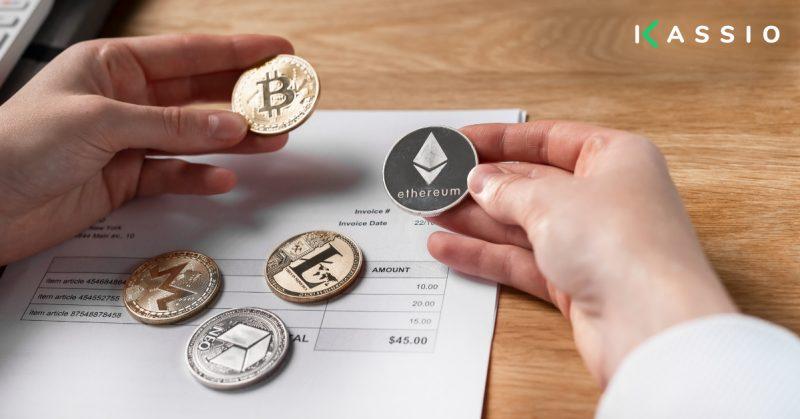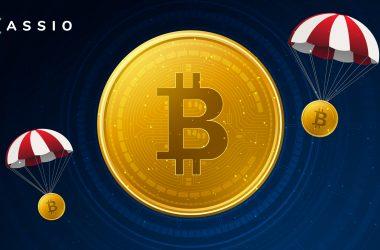The popularity of crypto and never-ending discussions around the crypto market in your personal & professional gatherings is giving you FOMO? Being a beginner, you often try to read more about crypto, but terms like HODL, FUD, and NFT make you feel more puzzled? Don’t worry! We understand how important it is to learn the basic terminology of the community you wish to be part of. We have simplified & listed down some of the popular terms of the crypto world that will help you understand and begin your crypto-investment journey.
Here are the top 10 popular crypto terms you need to know:
- HODL: It is not a misspelling; it is often used as an acronym for “hold on for dear life”. However, it was a slip of the finger by an early crypto enthusiast on an internet chat forum urging his fellow investors not to sell their crypto assets and hold them. Even so, the term HODL has become popular and is used consistently in the crypto world. Therefore, whenever you come across the term HODL, understand it means to HOLD your crypto assets.
- FUD: It is an acronym for “Fear, uncertainty, and doubt”, which usually gives rise to skepticism in the crypto community. It is a strategy to influence or alter the user’s perception of the crypto market as a whole or about a specific cryptocurrency that is bearish, leading to a dip in the market.
- Gas: Gas is similar to the processing fees you pay when you make transactions using your credit/debit card. Likewise, gas refers to the execution cost to conduct a transaction on the Ethereum blockchain network. Gas is priced in small fractions or smaller denominations of the cryptocurrency Ether (ETH), a virtual coin used in the network. These smaller denominations are known as ‘Gwei’ or ‘Nanoeth’.
- Whale: Individuals or organizations that hold a large amount of a specific cryptocurrency are termed whales in the crypto space; thus, they have the power to influence the crypto market. Examples of such whales include investment groups like Falcon Global Capital and Pantera Capital.
- Mining: The process of generating new coins by verifying recent transactions on the Bitcoin network or any other digital currency network is termed mining. It involves a vast network of decentralized computers termed ‘nodes’ which contribute their computational power to verify every transaction on the blockchain network. On successfully verifying the transactions, the nodes will be rewarded with newly generated digital coins in return for their processing power.
- Bitcoin Halving: Bitcoin supply is limited to 21 million, and the reward provided for mining will last roughly till the year 2140. The halving event helps in regulating the systemic generation of newly minted BTC. Bitcoin halving is the process by which the reward given to miners for participation in processing transactions is reduced by 50% to regulate the Bitcoin(BTC) circulation. This event occurs after every 210,000 blocks are mined, viz. after every four years.
- Token: Often, people use the terms token and coin interchangeably, but it is completely inaccurate. A coin is a default cryptocurrency of the native blockchain. In contrast, tokens represent a specific unit of value or asset residing on the native blockchain, but they have their own price, name and utilities. For example, Sand and Mana are tokens built on Ethereum, and they have utility for the virtual gaming platform, whereas Ether is the coin of the native Ethereum blockchain.
- Fiat: Fiat is the currency issued by a government that is not backed by commodities, but by the government itself. The fiat currencies are regulated by centralized authorities i.e the central banks of the respective country which control the monetary policy. Fiat currencies are the legal tender in the countries such as INR in India, USD in the U.S, and DKK in Denmark.
- NFT: Non-fungible Tokens (NFT) are distinct entities based on blockchain technology. The NFT refers to digital artwork in different forms like photographs, videos, audio, and other types of digital content in which data is stored on a decentralized digital ledger based on blockchain technology. Most cryptocurrencies are “Fungible,” meaning there is no distinction between them. For example, Bitcoin holders won’t care about which Bitcoin they hold. However, on the other hand, NFT is a unique and non-interchangeable unit.
- Defi: Defi, i.e., Decentralized Finance, is an emerging technology anticipated to bring a revolution in the Financial sector. Defi works on the principle of the secure decentralized distributed ledger based on blockchain technology. Being decentralized in nature, Defi removes all intermediaries by enabling peer-to-peer transactions. With Defi, businesses, merchants, and individuals can make transactions without relying on financial intermediaries like banks.
Hope this blog helps you to grasp the crypto terminology and build your foundation to explore more about the crypto world. To learn more about crypto investing, Join our Kassio community on Telegram and follow us on social media.






